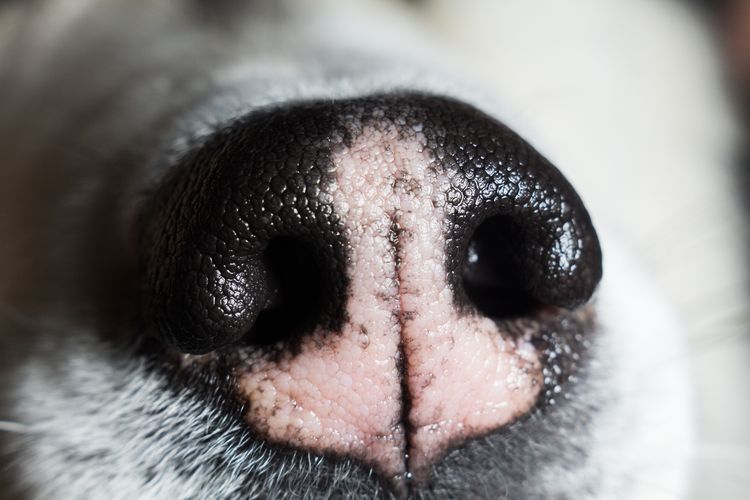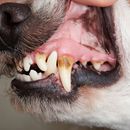Discoloration of the skin in dogs, especially black coloration, is a common phenomenon that concerns both pet owners and veterinarians. This blog post provides a detailed insight into the possible causes and significance of these changes. It also sheds light on when it is necessary to consult a vet.
Why does a dog's skin turn black?
Black coloration of the skin in dogs, also known as hyperpigmentation, occurs when the skin cells produce excessive melanin. Melanin is the pigment that gives the skin, hair and eyes their color. Various factors, such as genetic predisposition, hormonal disorders or skin diseases, can trigger this overproduction. It is important to understand that hyperpigmentation is often a secondary symptom that indicates an underlying condition.

Skin turns black in dogs: 6 causes
1. skin tumors
Skin tumors can manifest themselves through a variety of symptoms, including discoloration of the skin. They can be benign or malignant and usually require a thorough examination by a veterinarian.
2. pruritic dermatitis
This inflammatory skin condition is often caused by allergies, parasites or infections. The persistent itching causes dogs to scratch or bite themselves repeatedly, which in turn leads to skin changes such as thickening and darkening.
3. alopecia
Alopecia, the loss of hair, can also be accompanied by a change in skin color. The skin can thicken and darken, especially in areas where the hair falls out.
4. alopecia X
This particular form of alopecia is known for its effects on the coat and skin of dogs. It is common in certain breeds and can lead to significant hyperpigmentation.
5 Melanoderma and alopecia
This condition causes both hair loss and a marked darkening of the skin. It can indicate various underlying health problems.
6 Endocrine disorders
Endocrine disorders, such as hypothyroidism or Cushing's syndrome, can also cause hyperpigmentation of the skin. These conditions affect the dog's entire body function and require comprehensive veterinary treatment.

When do I need to see a vet?
It is advisable to see a vet as soon as changes in the dog's skin color or texture are noticed. Especially if these changes are accompanied by other symptoms such as itching, hair loss, behavioral changes or general lethargy. Early diagnosis and treatment are crucial to ensure the dog's well-being and to rule out or treat possible serious conditions.
Black coloration of the skin in dogs can be an indication of a number of health problems. From skin tumors to allergic reactions to hormonal disorders - the causes are manifold. Careful observation by the owner and a prompt veterinary examination are essential to identify the cause and initiate appropriate treatment. Ultimately, the health and well-being of the dog is of paramount importance, and a proactive approach can help prevent or minimize serious health issues.
It should be noted that this blog post only provides an introduction to the topic and cannot replace the advice of a qualified veterinarian. For specific concerns or questions, it is always best to consult a professional.




















